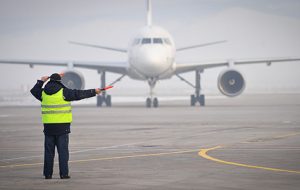How to Stay Safe While Studying Abroad?
Updated As of read 3 min

Due to many events happening around the world, study-abroad students must think about staying safe. As a precaution and in the event of any crisis, it is better to know who to get in contact with and where to seek safety. If you have a safety plan, if not, then you come up with one, practice it as often as possible.
We have created a list of some safety tips you should consider if you are in a crisis. If you already have some of these as your getaway plan, great. Otherwise, think about implementing them.
Keep Your Document Close
One of the better things to do is make a copy of your passport. It is best not to carry it with you so that you don’t lose it. If your country requires a visa, make a copy of it as well.
Having these documents are a significant advantage for identification purposes. If you need to seek a U.S. embassy or consulate, you can provide proof you are a U.S. citizen.
Related Read: Search Study Abroad
Register With The State Department
You should register with the Department of State to get assistance during an emergency. You will provide your trip information to make it easier to receive any information.
The State Department can provide names of attorneys, doctors, or any other that will assist you. You will also get information in regards to voting (absentee voting), notarized documents, and a passport.
Related Read: Register for the STEP Program
Always Have Someone Know Your Whereabouts
Let your family or friends know where you are going to be. You can give your family and friends your address and contact information. If you plan to leave the country for a short visit to another, again, keep them abreast of your whereabouts.
Know About the Local Laws
Every country has its laws, and once you are there, you must comply with them. Some practices in the U.S. may not be legal in the country you are studying. Before you go, research about the laws so that you are aware of them.
- Some countries impose harsh penalties for offenses we may consider in the U.S.
- Taking pictures of some places like government buildings, military bases, and embassies could be a violation.
- If you take any medication, make sure they are not illegal in the country you will visit.
- Avoid any areas that have demonstrations, riots, or political activities
Know What to Do in an Emergency or Crisis
If there is an emergency, you will be contacted by the State Department if you registered before going on your trip. If not, you can contact the State Department if you find yourself in a crisis. A crisis can be anything related to injury, illness, natural disasters, or terrorism.
If, for any reason, where you are, there is no way to communicate, find a safe place where you can call the U.S. embassy or consulate. The State Department has a special task force that is in touch 24 hours a day with the country’s Ambassador or Foreign Service Officers. They will find a way to get you out safely.
Conclusion
Traveling to a foreign country should be a fun and exciting experience. However, it’s important to remember that unexpected emergencies or crises could arise during your visit. That’s why it is crucial to prepare by registering with the State Department before you go, learning about possible risks associated with the area you will be visiting, and knowing who to contact in the event of an emergency. By taking these precautions, you can ensure that your trip is safe and enjoyable. Thank you for reading our U.S. Passport Help Guide!



